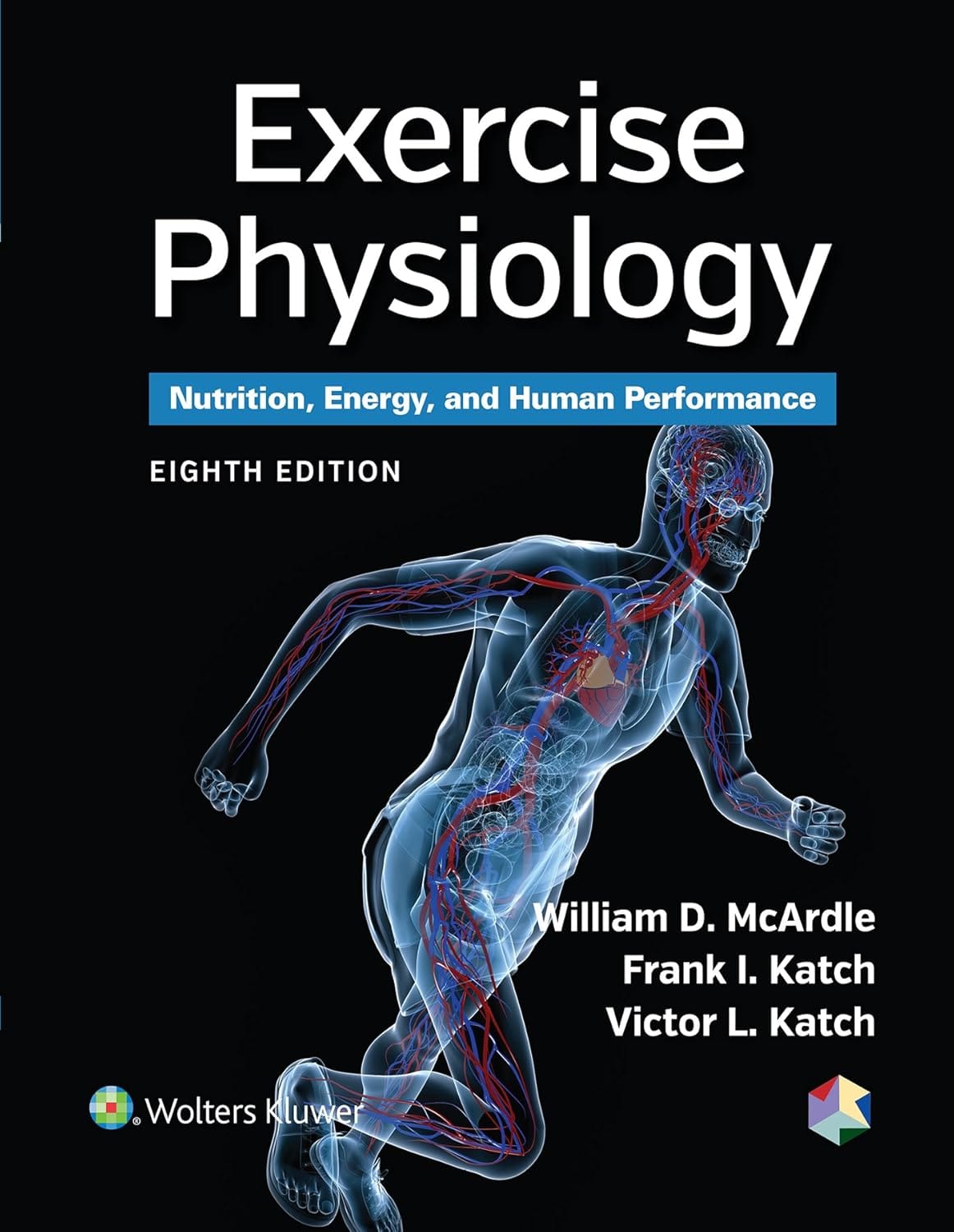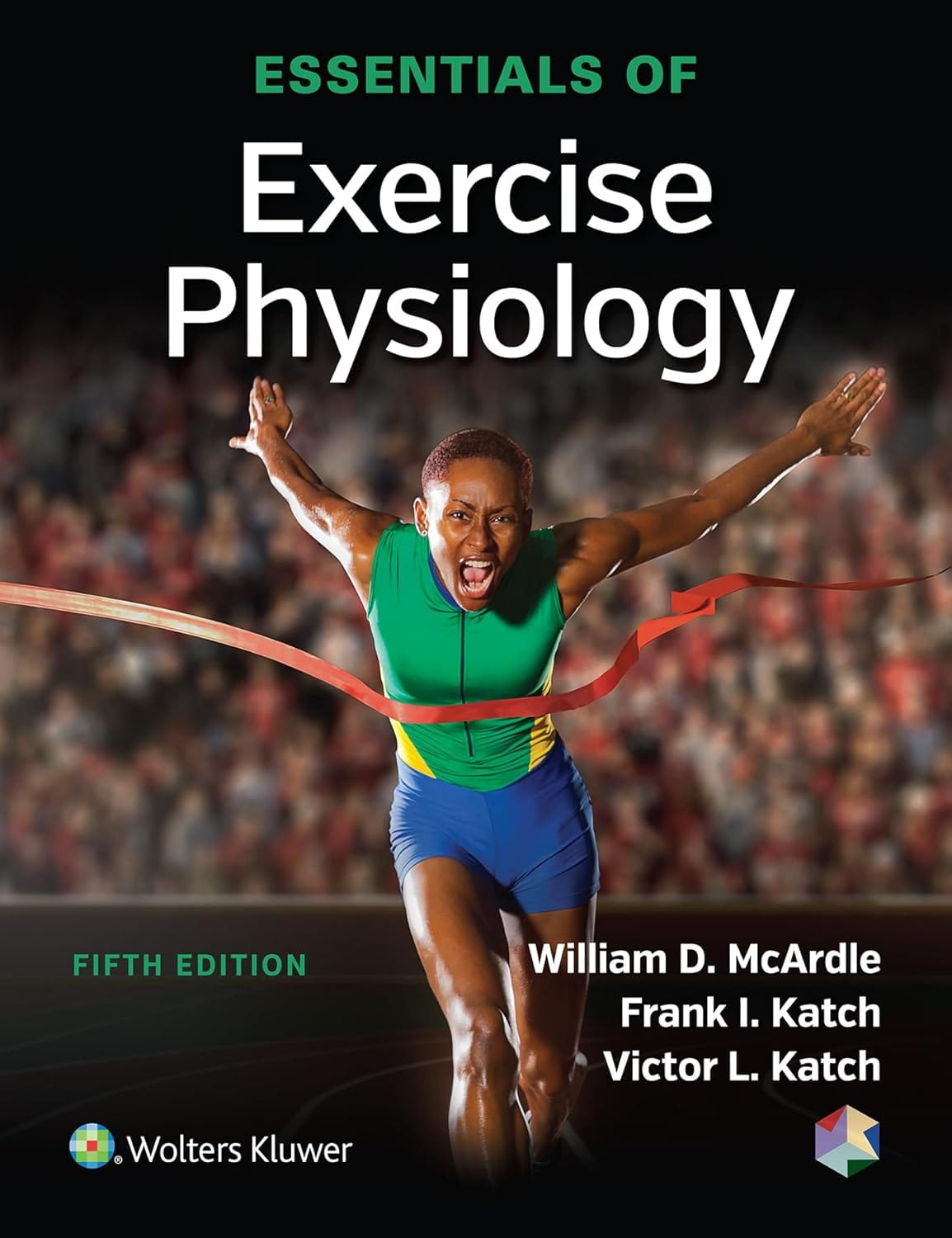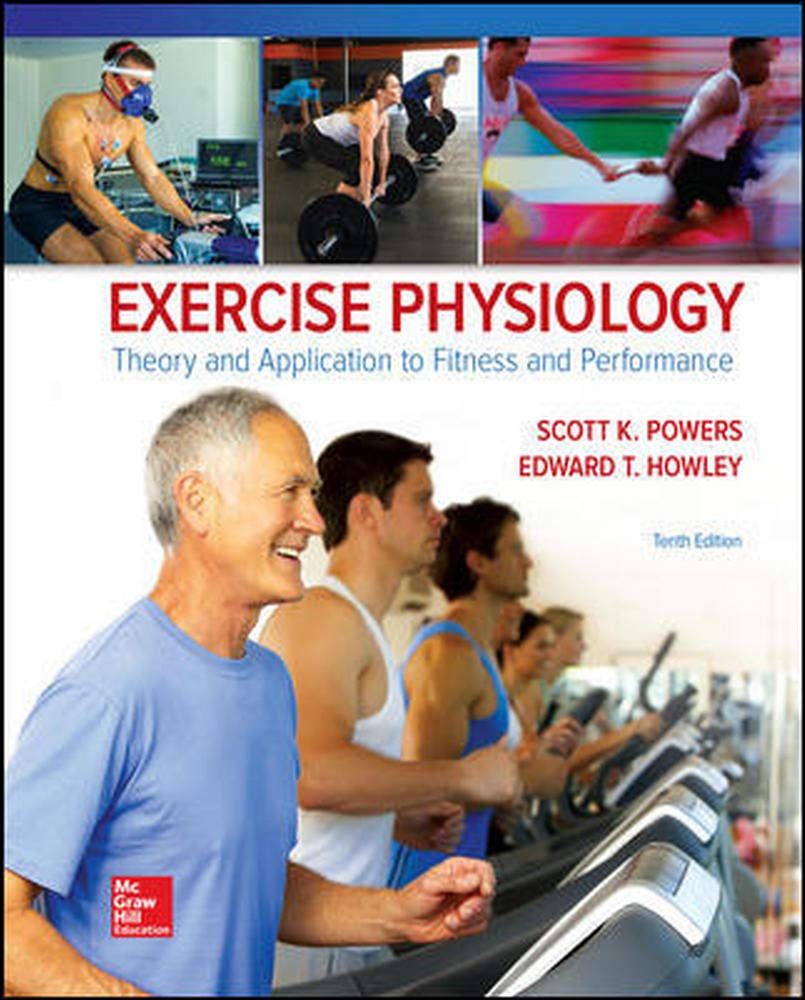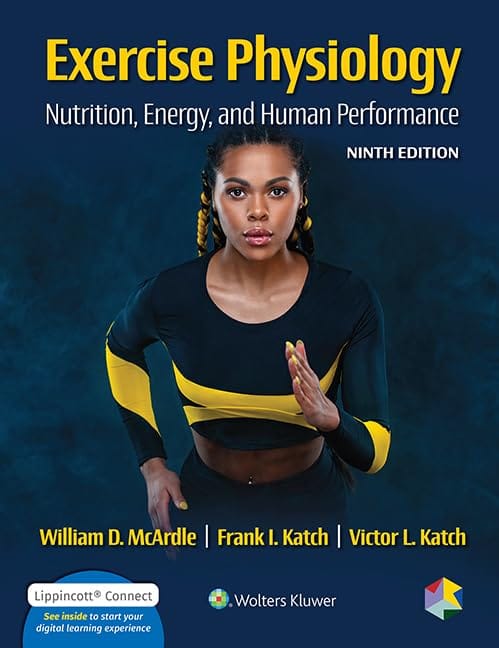Best Books On Fitness And Exercise Physiology
Best books on fitness and exercise physiology -Transform your understanding and approach to health.

Looking to get the most out of your workouts and understand the science behind them, check out these books. The practical guides on how to make the most out of your training, these books are essential for anyone looking to get the most out of their fitness journey.
Each book offers its unique insights, and together they provide a comprehensive overview of the science and practice of exercise and fitness. So regardless of whether you’re just starting or want to take your performance to the next level, these four books are sure to be invaluable resources.
If you're looking for the best books on fitness and exercise physiology, you've come to the right place! Exercise physiology is a fascinating and important field that can help you improve your health and fitness. To help you get started, we've rounded up four of the best books on the subject.
Exercise Physiology: Nutrition, Energy, and Human Performance
Shop Now
Exercise Physiology: Nutrition, Energy, and Human Performance is an essential reference for any student or practitioner of exercise physiology, nutrition, and human performance. This comprehensive book provides a thorough overview of the physiology, biochemistry, and nutrition involved in human performance, the latest research in the field.
With detailed nutrition information with energy sources, physical activity, exercise physiology, and the latest trends in human performance. With a focus on practical applications and the latest evidence-based research, this book is an invaluable resource for anyone interested in understanding how nutrition, energy, and exercise influence human performance.
Available at amazon.com
Essentials of Exercise Physiology
Shop Now
Essentials of Exercise Physiology, by William D. McArdle, Frank I. Katch, and Victor L. Katch, is a great choice for those looking for an in-depth exploration of exercise physiology. It provides detailed information on topics such as muscle physiology, metabolism, and cardiovascular function, as well as practical advice for improving exercise performance.
Available at amazon.com
Exercise Physiology: Theory and Application to Fitness and Performance
Shop Now
Exercise Physiology Theory and Application to Fitness and Performance, by Scott Powers and Edward Howley, provides an excellent overview of exercise physiology and its application to health and performance. It covers topics such as energy metabolism, nutrition, and muscle physiology, as well as the role of hormones and physical activity in health and performance.
The tenth edition provides students with an up-to-date understanding of the physiology of exercise through the use of numerous clinical applications, including exercise tests to evaluate cardiorespiratory fitness and information on exercise training for improvements in health-related physical fitness and sports performance. Includes smartbook, an adaptive reading and study experience that guides students to master, recall, and apply key concepts while providing automatically graded assessments.
Available at amazon.com
Exercise Physiology: Human Bioenergetics and Its Applications by George Brooks and Timothy Farrell
Shop Now
Exercise Physiology: Human Bioenergetics and Its Applications, by George Brooks and Timothy Farrell, is an excellent resource for those interested in exploring the science behind exercise physiology. It covers topics such as energy metabolism, nutrition, and muscle physiology, as well as the role of hormones and physical activity in health and performance.
Regarded as a standard in the field, this text integrates Bioenergetics into every chapter and provides a comprehensive survey of current data and research in exercise physiology. An in-depth discussion of all areas of exercise physiology makes this text an invaluable resource for students in exercise science, kinesiology, sports medicine, human biodynamics, and physical education.
Available at amazon.com
FAQs
We hope these books help you become an expert in exercise physiology and help you improve your health and fitness. Here are the FAQ's of best books on fitness and exercise physiology.
Q: How do I learn exercise physiology?
Answer: Learning exercise physiology can be an exciting journey that deepens your understanding of how the body responds to physical activity. Here are some steps to get started:
- Enroll in a Course:
- Online Courses: Websites like Coursera, edX, and Khan Academy offer courses on exercise physiology.
- University Programs: Many universities offer degrees in kinesiology or exercise science.
- Read Books:
- Start with foundational texts like "Essentials of Exercise Physiology" by William D. McArdle or "Exercise Physiology: Nutrition, Energy, and Human Performance" by William D. McArdle and Frank I. Katch.
- Use Online Resources:
- Websites and Blogs: Look for reputable fitness and health websites that provide articles and tutorials on exercise physiology.
- YouTube Channels: Channels like "Human Anatomy Education" and "Muscle and Motion" offer visual and practical insights.
- Join Professional Organizations:
- Organizations like the American College of Sports Medicine (ACSM) provide resources, certifications, and conferences that are invaluable for learning and networking.
- Practical Experience:
- Apply your knowledge through internships, volunteer opportunities, or working with a fitness professional. Hands-on experience is crucial for understanding how theories apply in real-life scenarios.
- Stay Updated:
- Exercise physiology is an evolving field. Subscribe to journals like the "Journal of Applied Physiology" and follow the latest research.
- Study Groups and Forums:
- Join online forums and study groups where you can discuss topics, share resources, and get your questions answered.
By combining theoretical knowledge with practical experience, you can effectively learn exercise physiology and apply it to improve fitness and health outcomes.
Q: What is the #1 best exercise?
Answer: There isn't a one-size-fits-all answer to the best exercise, as it depends on your fitness goals, preferences, and physical condition. However, many experts agree that walking is one of the best exercises for overall health. It's accessible, easy on the joints, and requires no special equipment. Walking regularly can improve cardiovascular health, boost mood, and help with weight management.
For those seeking a more comprehensive workout, swimming is often highlighted. It engages multiple muscle groups, improves cardiovascular health, and is gentle on the joints, making it ideal for all ages and fitness levels.
Ultimately, the best exercise is one that you enjoy and can stick with consistently. Whether it's walking, swimming, running, cycling, or strength training, the key is to stay active and make it a regular part of your routine. When you find a workout you love, it becomes much easier to stick with it and see results.
Q: What are the 5 goals of exercise physiology?
Answer: Exercise physiology focuses on understanding the body's responses to physical activity and applying this knowledge to improve health, performance, and recovery. Here are the five primary goals of exercise physiology:
- Enhance Physical Performance: Exercise physiologists study how different types of exercise affect the body to develop training programs that optimize athletic performance. By understanding muscle function, energy systems, and biomechanics, they help athletes reach their peak potential.
- Improve Health and Fitness: One of the main goals is to promote overall health and fitness. This involves creating exercise plans that enhance cardiovascular health, strengthen muscles, improve flexibility, and maintain a healthy weight. Regular exercise is a key factor in preventing chronic diseases like diabetes, heart disease, and obesity.
- Aid in Rehabilitation: Exercise physiology is crucial in the rehabilitation of individuals recovering from injuries or surgeries. By designing specific exercise routines, physiologists help patients regain strength, mobility, and function, speeding up the recovery process and reducing the risk of further injury.
- Prevent Injuries: Understanding the mechanics of movement and the effects of different exercises helps in designing programs that minimize the risk of injuries. Proper training techniques, warm-up routines, and conditioning exercises are integral to preventing both acute and overuse injuries.
- Conduct Research: Exercise physiologists research to continually improve our understanding of how the body responds to exercise. This research can lead to new methods and strategies for training, rehabilitation, and overall health improvement. It also contributes to evidence-based practices in sports science and healthcare.
By achieving these goals, exercise physiology plays a vital role in enhancing physical capabilities, promoting long-term health, aiding recovery, preventing injuries, and advancing scientific knowledge in the field of physical activity.
Q: What are the 3 most common fitness plans?
Answer: When it comes to fitness, there are countless plans and programs available. However, three of the most common and effective fitness plans are:
- Cardio Workouts: Cardio workouts focus on improving cardiovascular health and increasing endurance. These exercises include running, cycling, swimming, and high-intensity interval training (HIIT). Cardio workouts are great for burning calories, reducing body fat, and enhancing overall heart health.
- Strength Training: Strength training involves exercises designed to build muscle mass and increase strength. This plan includes weightlifting, resistance band exercises, and bodyweight exercises like push-ups and squats. Strength training is essential for maintaining muscle mass, boosting metabolism, and improving bone density.
- Flexibility and Mobility Training: Flexibility and mobility training aims to enhance the range of motion in the joints and improve overall flexibility. This plan includes activities like yoga, Pilates, and stretching routines. Flexibility training helps reduce the risk of injuries, alleviates muscle tension, and improves posture.
Each of these fitness plans offers unique benefits, and combining elements from all three can lead to a well-rounded and effective fitness regimen.
Q: Is exercise physiologist a good career?
Answer: Yes, becoming an exercise physiologist can be a rewarding and fulfilling career. Here’s why:
- Growing Demand: As more people recognize the importance of fitness and preventative healthcare, the demand for exercise physiologists is increasing. They play a crucial role in designing personalized exercise programs to help people improve their health, recover from injuries, and manage chronic conditions.
- Variety of Work Environments: Exercise physiologists can work in various settings, including hospitals, rehabilitation centers, sports organizations, fitness centers, and private practice. This variety allows you to choose an environment that best suits your interests and skills.
- Positive Impact: One of the most significant benefits of this career is the opportunity to make a meaningful difference in people’s lives. By helping clients achieve their fitness goals and improve their overall health, you contribute to their well-being and quality of life.
- Continuous Learning: The field of exercise physiology is constantly evolving with new research and advancements. This ensures that your career will be dynamic and intellectually stimulating, with plenty of opportunities for professional growth and development.
- Competitive Salary: Exercise physiologists can earn a competitive salary, especially as they gain experience and specialize in specific areas such as cardiac rehabilitation or sports performance.
- Job Satisfaction: Many exercise physiologists report high levels of job satisfaction due to the combination of engaging work, the ability to see tangible results in clients, and the overall positive work environment.
In summary, if you are passionate about fitness, enjoy helping others, and are interested in a career with diverse opportunities and a positive impact, becoming an exercise physiologist could be a great choice for you.
Best Recommendation For You
The best books on fitness and exercise physiology are excellent for people who want to track their exercise. It can be adjusted to accommodate different movements. If you are looking for a unique exercising book that will help you build muscle, fitness, and exercise physiology book is a good choice. You can check prices on Amazon and get the best deal available today!
Worth checking out!
